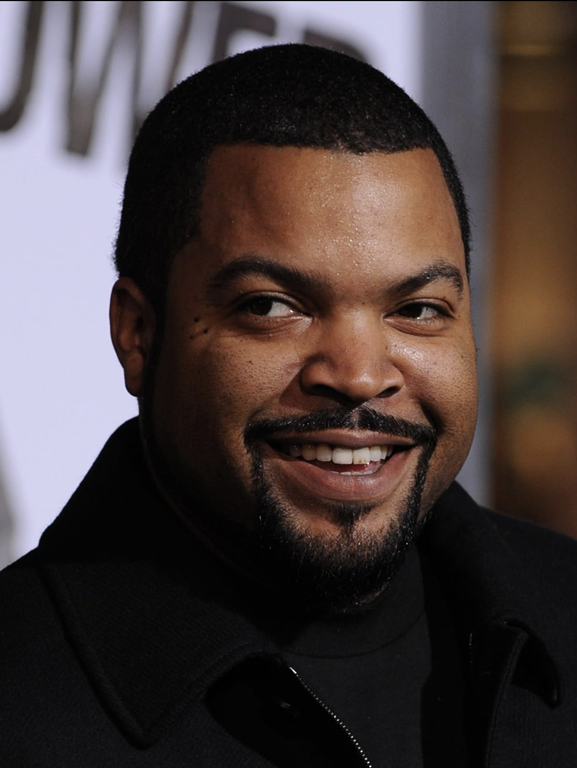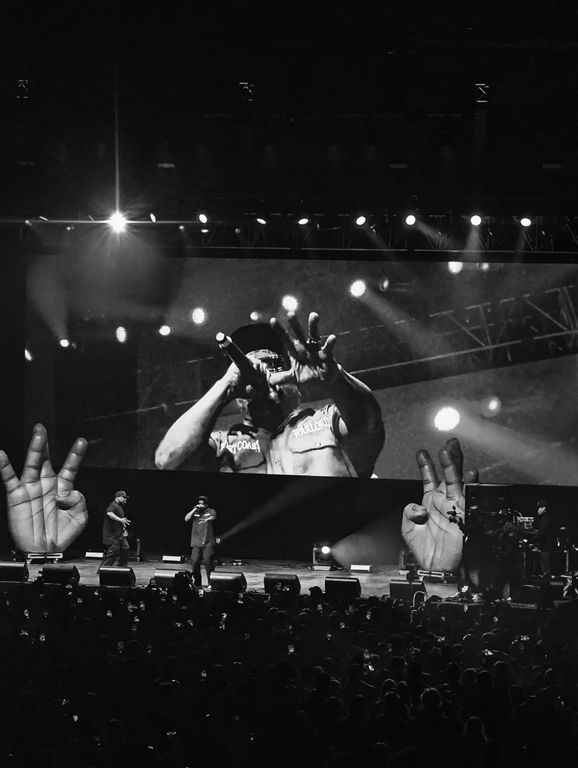Hip hop is, to put it bluntly, all the rage. It rules the airwaves and has far-reaching impacts on culture. However, before outright musical domination, the rap scene was a tumultuous place. In the early ?90s, the subgenre of “gangsta rap” took hip hop from a niche facet of the music world to the forefront.
Among the most prolific of these groups was N.W.A., who gained a reputation for creating a host of aggressive-yet-progressive tracks that put the spotlight on issues like police brutality and racism. Labelled “dangerous” by media outlets and even the FBI for their unorthodox personas, embrace of gang life, and criticism of the various systems of oppression that targeted them on the daily, they would come to embrace the label themselves. This, in turn, led to the group being unfairly treated by law enforcement.
When I heard one of N.W.A.’s founding members, Ice Cube, was headed to Abbotsford Centre for the first leg of his Straight Into Canada tour, it made me think about something I’d never considered before: Should we still listen to rap veterans over new talent?
Before we begin, I have a confession to make. I’m not necessarily a rap fan. I’m more of a ?60s rock n’ roll guy — less Biggie and more Beatles, so-to-speak. Why is this important when examining Ice Cube and his contemporaries’ relevance in today’s culture? Well, I like to think of myself as an impartial third party when it comes to this genre. I don’t listen to modern rap very often, and besides a bit of nostalgia, my connection to the ?90s rap scene is limited. As such, when comparing Ice Cube’s work to modern artists, I found that I vastly preferred Cube — for a number of reasons.
One thing that always bothered me about modern hip hop is that most songs sound too similar to each other — a generation of “mumble rap.” This could be the byproduct of beats and sound bytes being more readily available, giving anyone with internet access the potential to use them. Or perhaps this can also be attributed to smaller artists mimicking the sound of the genre’s biggest stars. Whatever the case may be, as an outsider, everything sounds the same.
Ice Cube on the other hand, somehow keeps things fresh. Sure, there’s still certain hallmarks of his style that are present in each song, but the variety in his catalogue was noticeable during the concert. For example, Go To Church has an upbeat, synth-heavy sound akin to that of the crunk sub-genre, known for heavy use of synths, whereas It Was A Good Day is noticeably more laid-back while still employing the use of synthesizers. If Ice Cube’s iconic vocals weren’t present, I definitely would’ve thought these tracks were from different artists, which isn’t a phenomenon I see often nowadays.

The most enjoyable part of the night was the handful of N.W.A. tracks that Cube performed: notably, Straight Outta Compton, Gangsta Gangsta,* and Chin Check. N.W.A. was obviously an important chapter in Ice Cube’s career, and for good reason. I found these songs to be among my favourites of the show. They were dirty, violent, and ruthless, but above all, honest. Lyrics like “Never shoulda been let out the penitentiary” speak to genuine social problems surrounding race and bigotry rather than meaningless tyrades about sex and wealth like the rappers of today.
After the concert, I watched the 2015 biopic, Straight Outta Compton, which Ice Cube produced, and provided even more insight into why their lyricism and messaging are the way they are. The group was arrested, beaten, and chased by police for no reason, or simply because they performed a controversial song such as “Fuck Tha Police,” (which regrettably wasn’t a part of the concert’s setlist). The animosity and vigour felt in these tracks is anger sharpened into a powerful lyrical weapon. They turned art into action; rap into a rallying cry; pain into a platform. This activist protestation has faded from the genre in recent years with a shift towards monotonous rhythms and lazy lyrics.
So yes, Ice Cube is still worth listening to. Both he and his contemporaries weren’t afraid to push the boundaries of rap, with innovative new sounds and messaging that spoke to their struggles — tenants that have fallen out of relevance today. This concert opened my eyes, and I saw that I was missing out on an incredible genre. Kudos to the greatest who ever did it!


